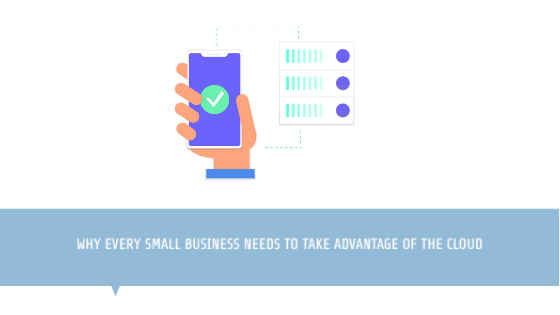All of us are cloud technology users.
If you have, at some point, sent an e-mail through a web browser you have triggered the cloud-based servers to process the request and return a response.
It is not at all surprising, that in the midst of a pandemic – when businesses had to suddenly shift to remote work, cloud technology services are the driving force that fuels the existence and innovation of businesses. In fact, a significant 94% of all workloads are predicted to be processed by cloud data centers by 2021.
Today, in 2020, most businesses are dependent on cloud providers that offer a wide range of services including servers, storage, compute power, AI, and more.
If you care about running your IT infrastructure more efficiently and being equipped to quickly accommodate to change – then you are ready to move to the cloud.
So, why is cloud computing important for small businesses?
You don’t have to spend on IT infrastructure.
It means minimizing cost for data storage and infrastructure, maximizing performance through productive business apps, maximum security, and seamless scalability.
It means that you don’t have to buy hardware or software. You don’t have to set up on-site datacenters and servers. No upfront infrastructure cost.
You don’t have to worry about data security, compliance, and regulations.
Because you can fully control who can access your systems or your data over the network.
With the Microsoft Trusted Cloud and their Microsoft Dynamics 365 cloud CRM business applications, small businesses are able to comply with GDPR and deploy their own cloud-based solutions to scenarios that have unique compliance and security requirements.
If you need help with this, contact the team at Solutionade, and we’ll deliver custom, cost-effective cloud CRM solutions that fit your industry and small business needs.
Scale-up with the cloud.
Because of the power of the cloud and its limitless flexibility.
If you decide to scale your system, you can easily get vast amounts of computing resources such as additional servers, CPUs, or memory to support data collection and scaling your business.
Do your best with your cloud applications.
Because everything is up to date, and you don’t have to worry about updating to the latest, faster, and more efficient computing services – especially if you have a Managed Services Partner like Solutionade to add to the maximizes performance of your cloud CRM apps like Microsoft Dynamics 365 for Sales – learn more about that here.
Which type of cloud computing is right for you?
Cloud computing takes various forms to accommodate the unique needs of different types of businesses.
There are two main possibilities to consider as a small business as you are moving your key systems to the cloud – type of cloud services and type of cloud deployment.
If you need to have complete control over the hardware that runs your cloud CRM or other key applications and run the user management of all your cloud services, operating systems, data, and applications – then Infrastructure as a Service(IaaS) can be your cloud service of choice.
With IaaS, businesses don’t have to worry about the expenses and complexity of storage management, backup, and recovery systems. If you need to quickly set up development and test environments or migrate existing on-prem apps to the cloud, then IaaS is the type of cloud service that may be a fit.
Platform as a Service, on the other hand, requires less user management, and the operating system and cloud apps are run by the cloud provider. With PaaS, developers can customize and build cloud-based applications using a built-in framework they can build upon. With PaaS, you get serverless computing. This allows you to build custom app functionality, without having to handle setup and server management and you don’t have to install an operating system – this type of cloud service does it for you.
Finally, Software as a service (SaaS) is a cloud service that eliminates the cost of ownership altogether and lets you use applications without having to worry about managing any underlying hardware. Your CRM software of choice like Microsoft Dynamics 365 Sales, your productivity apps like Microsoft 365 and Teams are all SaaS examples. If you need help with the development, customization, or implementation of any of these apps, please reach out.
Deploy on the public, private, or hybrid cloud?
The most common deployment model businesses choose is the public cloud. This means that all of the IT infrastructures are owned and managed by the cloud provider. Whereas, private clouds are made to accommodate businesses that need to comply with strict legal or security requirements.
Lately, businesses who strive for greater flexibility and more deployment options tend to choose the hybrid cloud deployment model where public and private clouds are combined and specific pieces of your data that may need to be stored privately can easily be held in a private datacenter.
Once your cloud strategy is set in place you can start deploying your key cloud applications and your data. You can deploy Dynamics 365 online using multiple types of environments: Trial, Sandbox, Production, Default, or Developer. Trial and Sandbox environments can support your short-term needs and offer features like automatically cleaned up data after a short period of time or reset. Production, Default, and Developer environments are created for permanent work in an organization.
